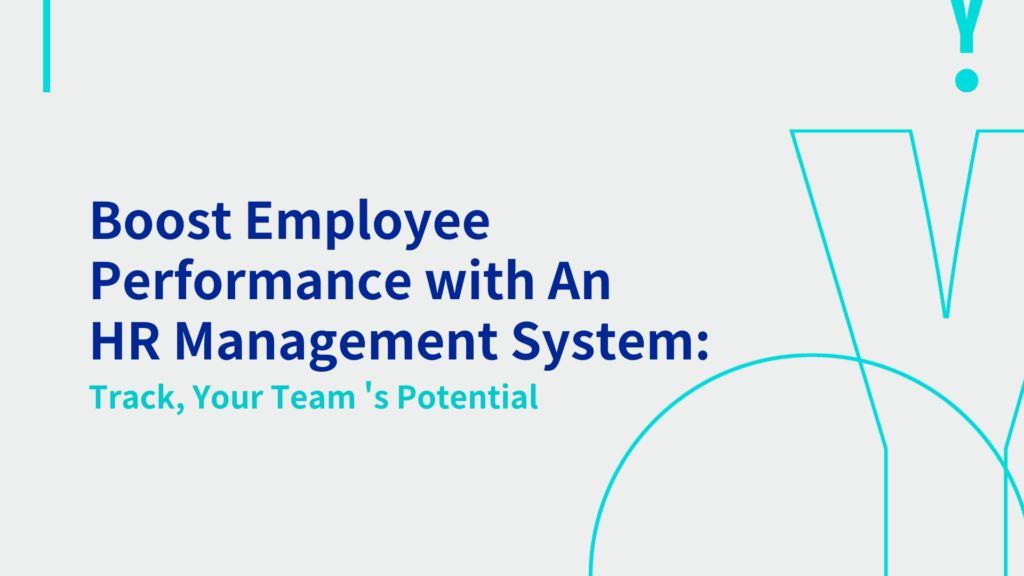
In today’s competitive landscape, business success relies heavily on an engaged workforce. Leaders are constantly searching for ways to elevate productivity, improve employee satisfaction, and reduce turnover. Yet, achieving these goals can feel like chasing a moving target, as each generation brings new expectations to the workplace.
Human resources information systems have become powerful tools in tackling these challenges. Designed for modern-day demands, these systems simplify complex HR processes while also fostering an environment that drives employee engagement.
For management, the real challenge lies in selecting and implementing an HR system that aligns with specific company objectives. Is your current system maximizing your team’s potential, or is it holding back your organization?
Let’s dive into how an HR system can be the key to unlocking exceptional employee engagement and, ultimately, sustainable growth.
- Building Engagement through Performance Management
- Promoting Career Development and Learning Opportunities
- Human Resources Information Systems: The Backbone of Effective Engagement Strategies
- Measuring Engagement Levels
- Predicting Retention Along with Reducing Turnover
- Steps to Implement An HR System That Drives Engagement
- End Note
The Role of HR Systems in Employee Engagement
An effective HR system is more than just a data repository—it’s the backbone of strategic employee engagement initiatives.
When integrated well, HR systems simplify data-driven decision-making. This supports personalized strategies that keep employees motivated, recognized, and connected to the organization. But, what exactly does an HR system do for employee engagement?
Here’s a closer look.
Centralized Communication for Transparency
Transparency fuels trust and trust forms the foundation of employee engagement. HR systems offer a centralized platform for all company updates, policy changes, and event announcements. Therefore, with real-time communication features, employees remain informed and connected.
Imagine how informed employees feel more included and valued. Hence, this sense of inclusiveness directly impacts engagement levels and creates an open company culture.
A Perfect Onboarding
Onboarding is a crucial, often underestimated, engagement opportunity. A smooth, engaging onboarding experience ensures new hires feel welcomed and prepared. Modern human resources information systems streamline onboarding through automated workflows, checklists, and interactive training modules.
A successful onboarding process not only educates but also inspires. Therefore, by providing a seamless transition, new employees feel supported and connected, improving their long-term commitment to the organization.
Building Engagement through Performance Management
Performance management plays a pivotal role in keeping employees engaged, aligning their work with organizational goals, and fostering a culture of growth.
Setting Clear Goals & Expectations
With HR systems, managers can set precise goals for individuals and teams, aligning them with broader company objectives. Clear goals provide direction and purpose, which are essential for engagement.
Employees are more engaged when they see their work contributing to overall success. Hence, its clarity through a reduction in confusion motivates team members and leads to better performance across the board.
A New Era of Engagement with Continuous Feedback
Annual reviews are no longer sufficient for today’s fast-paced work environment. Modern HR systems enable real-time feedback, allowing managers and peers to provide ongoing insights into performance.
Continuous feedback fosters a growth mindset. Employees become more invested in their work, knowing they’ll receive regular, constructive feedback that helps them grow.
On the other hand, recognition of your employees matters.
Employees are more likely to remain engaged when they feel appreciated. The best human resources information systems enable personalized, immediate recognition by tracking achievements and allowing for various reward options.
From employee-of-the-month recognitions to spot bonuses, rewards in real-time strengthen engagement. Therefore, recognition systems create a positive reinforcement loop that encourages employees to keep performing well.
Promoting Career Development and Learning Opportunities
Career development and learning play a crucial role in employee satisfaction and retention. A forward-thinking HR system integrates these aspects, fostering a motivated and loyal workforce.
Customized Learning Paths for Skill Enhancement
HR systems offer tailored learning paths that allow employees to enhance skills relevant to their roles. These platforms house an array of courses, from technical skills to leadership training.
When employees have access to learning resources, they feel empowered. Empowered employees are engaged employees who contribute proactively to company goals.
Career Development Plans That Motivate
HR systems enable managers to work collaboratively with employees to create customized career plans. Hence, such a forward-looking approach ensures employees have a clear understanding of their future within the company.
Employees engaged in career planning are less likely to seek opportunities elsewhere. By understanding their growth potential, employees feel more invested in their current role.
A supportive work environment is vital for sustained engagement as well as development. Human resources information systems offer tools that promote well-being, from tracking work-life balance to promoting health initiatives.
- Flexible Work Arrangements
HR systems make it easier to manage flexible work schedules, remote work, and hybrid arrangements. Employees feel more balanced when their work setup respects their personal life.
Moreover, organizations that support work-life balance see increased productivity and engagement. When employees feel trusted, they’re more likely to give their best effort.
- Wellness Programs
Employee wellness programs go beyond traditional benefits. HR systems allow organizations to track wellness initiatives and measure their impact on engagement levels.
From mental health resources to physical fitness programs, wellness tools keep employees energized and reduce burnout risks. Employee engagement and productivity are higher when they feel valued.
Human Resources Information Systems: The Backbone of Effective Engagement Strategies
An HR system with built-in analytics tools gives management invaluable insights into engagement trends, turnover risks, and more. Data-based decisions lead to more targeted, effective strategies.
Measuring Engagement Levels
Regular engagement surveys, pulse checks, and feedback forms give management a pulse on employee sentiment. Analyzing this data helps identify engagement gaps early, allowing proactive adjustments.
With data-driven strategies, managers can tackle issues before they escalate. Early intervention leads to a happier, more engaged workforce.
Predicting Retention Along with Reducing Turnover
High turnover rates are costly. Therefore, by analyzing data on employee behavior, the best human resources information systems can predict potential turnover risks. This early detection enables timely interventions, preventing valuable talent loss.
With predictive analytics, companies can identify retention issues, address concerns, and maintain a stable, engaged team. This proactive approach saves resources and supports sustained growth.
Steps to Implement An HR System That Drives Engagement
Implementing an HR system requires careful planning and a strategic approach to ensure it aligns with company goals.
- Define Objectives & Select The Right Features
Start by defining clear objectives for your HR system, focusing on the features that will best support engagement initiatives. A system with essential features—communication tools, feedback options, and analytics—can dramatically boost engagement efforts.
- Involve Stakeholders Early On
Involve stakeholders at every stage to ensure the system meets company needs. Additionally, a collaborative approach boosts buy-in, leading to smoother implementation and higher engagement.
- Train Managers & Employees for Effective Use
Invest in thorough training to help everyone understand the system’s benefits and functionality. Thus, well-informed users are more likely to engage with and benefit from the system.
End Note
In today’s business world, employee engagement is the secret sauce for high productivity, innovation, and loyalty. The best HR information systems provide the perfect platform to create an engaging work environment. From seamless onboarding to continuous feedback, personalized learning paths, and wellness support, an HR system caters to the diverse needs of today’s workforce.
As a management team, investing in robust human resources information systems can transform your company culture and drive growth. When employees feel valued, informed, and supported, they’re motivated to excel and remain loyal to the organization.
So, to embrace the potential of an HR system, connect with YOOV. Witness the positive change it brings to your team and your businesses.
Connect with YOOV

Tel:+852 2988 8883
WhatsApp:Click Here
Email:cs@yoov.com
Website:https://www.yoov.com/